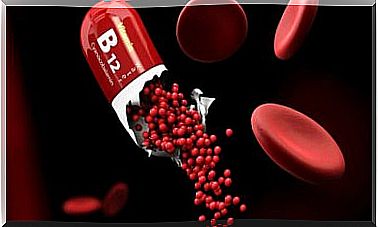Improve Mental Focus In 5 Steps

There are those who argue that potentially the most prodigious aspect of the human mind is the ability to maintain concentration. Improving mental focus allows us to take full advantage of this power.
Keeping our concentration high means reducing the influence of distracting elements and increasing our performance. The good news is that anyone, with a little practice and intuition, can improve this basic skill.
For the mind, in fact, the same rule applies as regards the muscles: the more it is exercised, the more it becomes stronger. Improving mental focus , therefore, is always possible. That doesn’t mean it’s quick or easy. Achieving this is through the conscious effort to eliminate, change or introduce new habits.
5 moves to improve mental focus
Assess your mental focus
The first step in improving your ability to concentrate is to assess your current state. Try asking yourself a few questions. “Daydreaming while dealing with an important issue ?. “Do I often lose track of what I’m doing and have to start over?”. “Is it getting harder and harder to avoid distractions?” If the answer is yes, you have a lot of room for improvement.
Other questions to ask yourself are how you approach tasks that particularly test your skills. Do you have a habit of setting a goal and dividing the work into easier-to-do segments? If you find yourself wandering with your mind, do you take a short break and then resume? Do you try to solve the most complex parts of the job at the times of the day when you feel most active?

Remove distractions
It sounds obvious, but eliminating distractions is key to improving focus. The problem is that we are often unaware of the large amount of distractions we have around us.
For this reason, start identifying sources of distraction with the aim of reducing them. Damping down distractions might seem like an easy job or a waste of time, but research actually tells us otherwise.
In fact, consider that not all distractions come from outside. Environmental noise and disruptions are often easier to control than the problems that work in our minds like a woodworm. Worry, frustration, anxiety, lack of motivation, and other disturbing factors can be very annoying and persistent.
To reduce internal distractions, it is important to include moments, in our agenda of daily commitments, dedicated to freeing ourselves from fatigue and heaviness. Using positive thoughts and affirmations is another good strategy, especially when we find ourselves battling anxiety and worry.
One thing at a time
Multitasking is not effective, although a priori it may seem like a formidable training for our mental focus. On the contrary, it reduces productivity and prevents us from distinguishing the important details from those that are not. Our attention, after all, has a limited capacity.
Part of the process of improving attention is making the most of our personal resources. That’s why you need to abandon multitasking and instead devote all your attention to just one activity or problem.
Take short breaks
After some time, the concentration can begin to “spoil” and lose its effectiveness. The yield, consequently, decreases.
Traditional psychology suggests that this is due to the depletion of attention resources, but some researchers believe it has more to do with the brain’s tendency to change sources of stimuli.

In this sense, the researchers understood that taking short breaks, diverting attention for a few moments, helps to improve mental focus. Introducing “breathing moments” into activities that require great concentration help keep it high. It is therefore important that our roadmap includes spaces where we can free the control of our attention.
Improving mental focus is a constant exercise
Two caveats: improving concentration takes time. There is always a margin to work on. One of the first steps is, therefore, to recognize the impact of distraction as a source of exhaustion. By changing your mental focus, following the strategies we have proposed to you, you will discover that it is possible to maintain a higher and more lasting level of attention.
In addition, other elements, such as diet or sleep quality, contribute to a healthy ability to concentrate. By controlling the factors that directly and indirectly affect attention, you will see your mind gain in agility.









